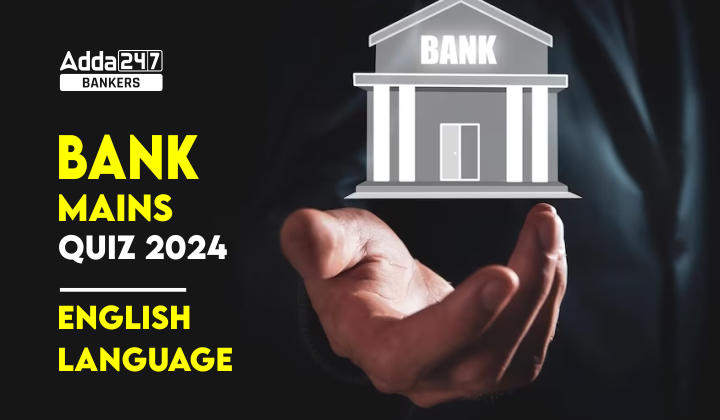Directions (1-5): Read the following passage carefully and answer the questions given below it.
There’s a paradox at the heart of global finance. The U.S. share of the world economy has drifted lower for decades, and now President Trump is retreating from the American chief executive’s traditional role as Leader of the Free World. Yet the U.S. dollar remains, as the saying goes, almighty. “American exceptionalism has never been this stark,” Ruchir Sharma, head of emerging markets and chief global strategist for Morgan Stanley Investment Management, said at a Council on Foreign Relations symposium on Sept. 24. By the latest tally of the European Central Bank, America’s currency makes up two-thirds of international debt and a like share of global reserve holdings. Oil and gold are priced in dollars, not euros or yen. When Somali pirates hold up ships at sea, it’s dollars they demand. And threats to be cut off from the dollar-based global payments system strike terror into the likes of Iran, North Korea, and Russia. It’s no exaggeration to say that the dollar’s primacy is at least as valuable to the U.S. as a couple of aircraft carrier strike groups.
Political leaders who once accepted the dollar’s hegemony, grudgingly or otherwise, are pushing back. Jean-Claude Juncker, the president of the European Commission, said in September that it’s “absurd” that European companies buy European planes in the American currency instead of their own. In March, China challenged the dollar’s dominance in the global energy markets with a yuan-denominated crude oil futures contract. Russia slashed its dollar holdings this year, claiming that the greenback is “becoming a risky instrument in international settlements.” And French Finance Minister Bruno Le Maire told reporters in August that he wants financing instruments that are “totally independent” of the U.S., saying, “I want Europe to be a sovereign continent, not a vassal.”
This disturbance in the force isn’t good news for the U.S. The dollar’s preeminent role in global finance is an “exorbitant privilege,” as Valéry Giscard d’Estaing, then France’s finance minister, said in 1965. If the dollar loses its central role—to be sure, not an imminent threat—the U.S. will be more vulnerable when there’s a loss of investor confidence. The Federal Reserve might even have to do what other nations do when global investors panic: jack up interest rates to painful levels to keep speculative money from flowing out. As it is now, when trouble breaks out, investors flood into U.S. markets seeking refuge, oddly enough even when the U.S. itself is the source of the problem, as it was in last decade’s global financial crisis.
A slippage in the dollar could also be viewed as a symptom of U.S. isolationism. “In a hypothetical scenario where the U.S. withdraws from the world,” damage to the dollar’s standing could cause average U.S. interest rates to rise by 0.8 percentage point, according to a December paper by Barry Eichengreen of the University of California at Berkeley and two researchers from the European Central Bank.
While any serious erosion of the dollar’s status would take years, the U.S. can’t take its preeminence for granted, says Eichengreen: “Being the incumbent international currency is an advantage, but it’s not the only thing that matters.”
The most immediate risk to the dollar is that the U.S. will overplay its hand on financial sanctions, particularly those against Iran and countries that do business with Iran. In May the Trump administration withdrew from the 2015 deal that eased sanctions on Iran in exchange for that country’s promise to stop certain nuclear activities. The U.S. will reimpose sanctions on Nov. 4 and is successfully pressuring companies outside the U.S. not to do business with Tehran. European companies and banks could be punished by the U.S. if they inadvertently transact with sanctioned Iran and Iranian groups such as the Islamic Revolutionary Guard Corps. European leaders, in response to what they perceive as an infringement on their sovereignty, are openly working on a payments system that would enable their companies to do business with Iran without getting snagged by the U.S. Treasury Department and its powerful Office of Foreign Assets Control. One idea is to set up a government-funded organization, which would be less vulnerable to U.S. actions than a private company or bank, to arrange exchanges of Iranian oil for products from Europe and possibly Russia and China as well. French officials say the transactions might be structured as barter to avoid involving banks. “We cannot accept as Europeans that others, even our closest allies and friends, determine who we can do business with,” Federica Mogherini, the European Union’s foreign policy chief, said at the Bloomberg Global Business Forum on Sept. 26.
The Europeans’ progress has been slow, so there won’t be anything ready in time to alleviate the sanctions taking effect in November, says Carsten Brzeski, a former European Commission official who’s now chief economist of ING-DiBa, the German branch of the Dutch banking company ING Group. Indeed, U.S. national security adviser John Bolton dismissed the European plan from the sidelines of the United Nations General Assembly meeting in late September, calling the European Union “strong on rhetoric and weak on follow-through.” He needled, “So we will be watching the development of this structure that doesn’t exist yet and has no target date to be created.”
Q1. What is/are the signs that show(s) the unraveling of the dollar paradox?
(I) European Commission finds unreasonable to trade for the European products by the European companies in dollars.
(II) China has initiated Yuan-denominated crude oil contracts to surpass dollar’s hegemony.
(III) French minister expects dominance of US Dollar over European currency.
(IV) Russians are insecure for using dollars as an instrument for international discharges.
(a) Only (I)
(b) Both (II) and (III)
(c) Only (I) (II) and (IV)
(d) Only (I) (II) and (III)
(e) All (I) (II) (III) and (IV)
Q2. According to the passage what is/are the immediate risks that the US Dollar is/are facing?
(I) Nuclear attacks on the US due to the re-imposition of the earlier eased sanctions.
(II) France may find an alternative for trading with other countries to avoid involvement of any currency.
(III) European leaders are planning to set up a government-funded organization to trade with Iran, Russia and China.
(a) Only (III)
(b) Both (I) and (III)
(c) Only (I)
(d) Both (II) and (III)
(e) All (I) (II) and (III)
Q3. According to the passage, what is/are the fields where dollar hegemony is visible?
(I) Dollar makes up for the two-thirds of the international debts and a like share of the global reserve holdings.
(II) Oil and gold are priced in the American currency.
(III) Somali pirates demand for dollars to release the ship they capture.
(IV) Iran, North Korea and Russia are dreaded with the threats to be cut off from the dollar-based global payments system.
(a) Only (I)
(b) Both (II) and (III)
(c) Only (I) (II) and (IV)
(d) Only (I) (II) and (III)
(e) All (I) (II) (III) and (IV)
Q4. Which of the following(s) explains the paradox of the US dollar at the heart of global finance?
(I) Even though America has adopted the policy of exceptionalism, the dollar is still losing its strength.
(II) Even though there are threats from US in the global payment system, the Dollar still makes up for two-third of international debts.
(III) Even though the US share of the world economy is declining for decades, the dollar still stands out as the most powerful instrument in the international market.
(a) Only (III)
(b) Both (I) and (III)
(c) Only (I)
(d) Both (II) and (III)
(e) All (I) (II) and (III)
Q5. Suggest the most appropriate title for the given passage.
(a) The growing paradox of US dollar.
(b) The tyranny of US dollar.
(c) The rebel of European leaders.
(d) Iran in international market.
(e) Europe as a Sovereign Continent.
Solutions:
S1. Ans. (c)
Sol. The US dollar paradox means even though President Trump withdraws from the American chief executive’s traditional role as the Leader of the Free World, the dollar will still appreciated as the most powerful trading instrument. The Paragraph 2nd quotes all the statements from the different ministers that indicate the vanishing of the dollar paradox.
Refer to the lines of the 2nd paragraph “Political leaders who once accepted the dollar’s hegemony, grudgingly or otherwise, are pushing back… sovereign continent, not a vassal.”
S2. Ans. (d)
Sol. The 4th paragraph mentions the risks for the dollar as the US has decided to punish the countries that will transact with Iran and Iranian groups. However, European leaders have fearlessly decided to form a separate government funded organization to trade with Iran, so as to outcast US dollar from the transactions. This step may cause fall in the value of Dollar in the international market.
Refer to the 7th line of the 4th paragraph “European leaders, in response to what they perceive… to avoid involving banks”.
S3. Ans. (e)
Sol. Dollar’s dominance is visible in all the given fields. Refer to the 6th line of the 1st paragraph “By the latest tally of the European Central Bank, America’s currency makes up two-thirds of international debt and a like share of global reserve holdings. Oil and gold are priced in dollars, not euros or yen. When Somali pirates hold up ships at sea, it’s dollars they demand. And threats to be cut off from the dollar-based global payments system strike terror into the likes of Iran, North Korea, and Russia”.
S4. Ans. (a)
Sol. The US dollar paradox means even though Even though the US share of the world economy is declining for decades, the dollar is still appreciated as the most powerful trading instrument. To validate the answer, refer to the first line of the first paragraph “There’s a paradox at the heart… dollar remains, as the saying goes, almighty”. All the other alternatives do not precisely depict the meaning of US dollar paradox.
S5. Ans. (b)
Sol. Since the passage is describing about the unreasonable use of power and control of the US dollar in the international market, the title “The tyranny of US dollar” aptly justifies its content. All the other titles fail to denominate the passage.




 English Language Quiz For Bank Foundatio...
English Language Quiz For Bank Foundatio...
 English Language Quiz For Bank Mains Exa...
English Language Quiz For Bank Mains Exa...


